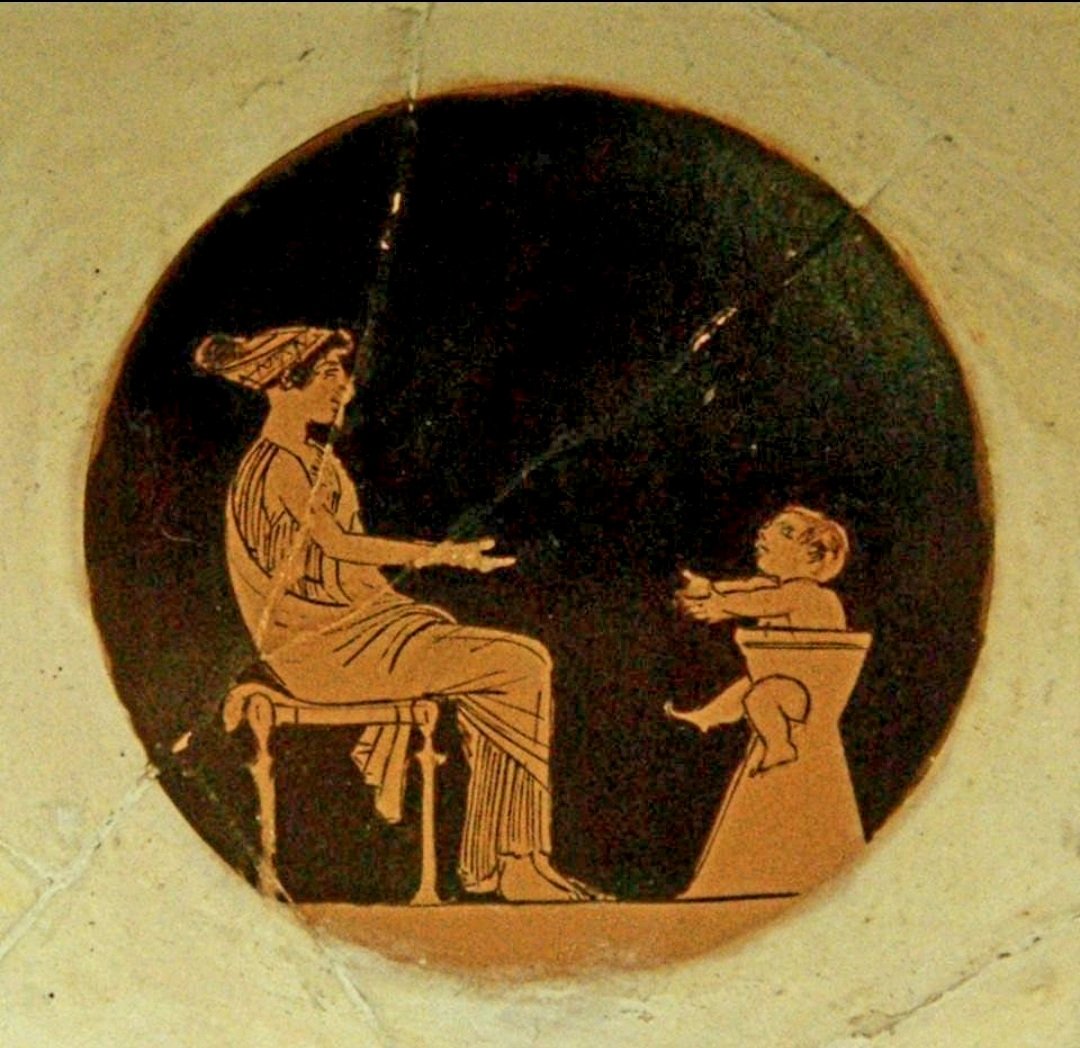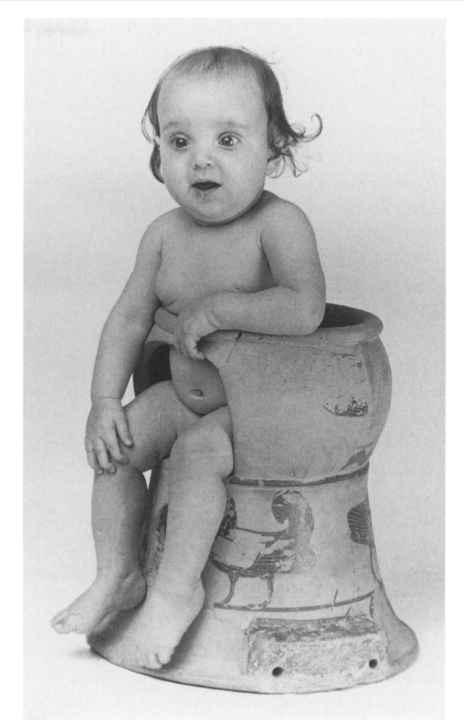Ancient Greek art often portrays grand mythological themes, leaving domestic life in the shadows. However, a remarkable kylix (drinking cup) from around 480 BC offers a rare glimpse into everyday life, depicting a baby sitting on a potty chair and calling out to his mother. Housed in the Royal Museums of Art and History in Brussels, this scene not only highlights the intimate nature of familial relationships but also provides a snapshot of ancient Greek childhood.

The Kylix: A Window into Domestic Life
This depiction on the kylix is exceptional for its portrayal of a child’s routine, an aspect seldom explored in ancient Greek art. The image reflects the practical realities of life in ancient Greece, revealing how children were cared for and the attention given to their upbringing. In a society focused on gods and heroes, this playful yet intimate moment is a rare depiction of family life. The artifact offers a unique perspective, emphasizing that even mundane moments like a child needing care were significant in ancient Greek society.
The Athenian Agora Potty: A Tangible Connection
Further enriching our understanding of ancient Greek childhood, a 6th-century BCE potty was discovered in the Athenian Agora. This artifact, now displayed at the Agora Museum in Athens, complements the kylix, providing a tangible link to the everyday tools used in childrearing. The potty’s discovery emphasizes that children’s needs were met with purpose and care, even in antiquity. It allows us to understand the domestic tools that played a role in nurturing the younger generation.

Connecting the Artifacts: Childhood in Ancient Greece
Together, these artifacts—both the kylix and the potty—highlight the significance of childhood in ancient Greece, a topic often overshadowed by the grander narratives of politics and mythology. These objects showcase the human side of Greek society, offering insights into family life and the role of children, reminding us that despite the focus on public achievements, the everyday aspects of life were equally valued.
Through these discoveries, we gain a more complete understanding of ancient Greece, showing that family dynamics and childhood experiences were as integral to Greek culture as the more commonly known aspects of their civilization.


